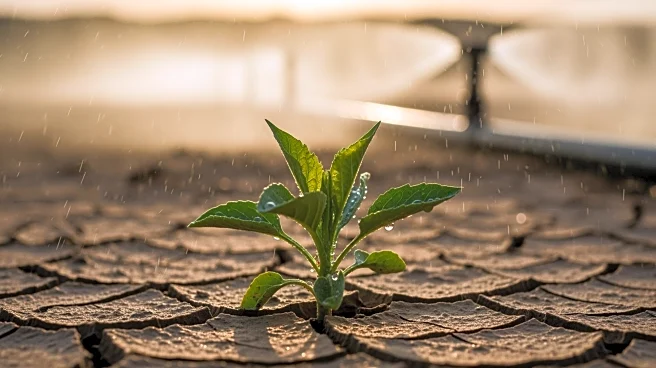What's Happening?
Israel is transforming its desert landscape into productive agricultural land through the use of desalination, drip irrigation, and wastewater reuse. Despite having over 60% of its territory covered by desert and facing significant water scarcity, Israel has
developed advanced technologies to support high-precision farming. Desalination has become a crucial component, providing a substantial portion of the country's drinking water and enabling agriculture to thrive without regular rainfall. The government treats water management as a national security issue, implementing strict quotas and encouraging water-saving technologies. The integration of desalination and irrigation systems has allowed Israel to achieve record productivity, harvesting up to 300 tons of tomatoes per hectare.
Why It's Important?
Israel's agricultural advancements serve as a model for sustainable farming in arid regions. The country's success demonstrates how technology can overcome environmental challenges, turning scarcity into an opportunity for innovation. This approach not only ensures food security but also positions Israel as a leader in agricultural technology, exporting knowledge and techniques globally. The efficient use of water resources and the development of resilient crops contribute to environmental sustainability and economic growth. Israel's strategies could inspire other nations facing similar challenges to adopt innovative solutions for their agricultural sectors.
Beyond the Headlines
The ethical and environmental implications of Israel's agricultural practices are noteworthy. By prioritizing water conservation and recycling, Israel sets a precedent for responsible resource management. The focus on sustainable agriculture aligns with global efforts to combat climate change and reduce environmental impact. Additionally, the collaboration between government, scientists, and farmers highlights the importance of cooperative efforts in achieving large-scale success. Israel's achievements may influence international policies on water management and agricultural innovation, encouraging a shift towards more sustainable practices worldwide.
















